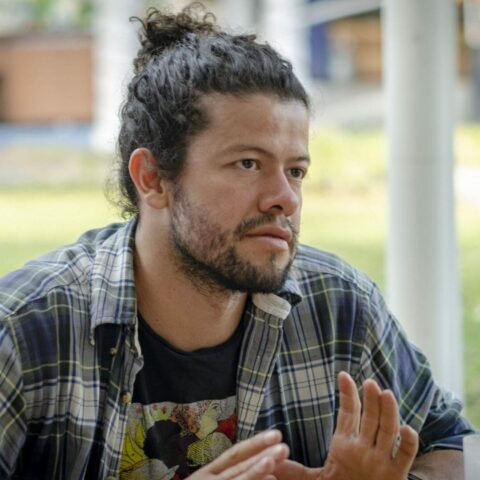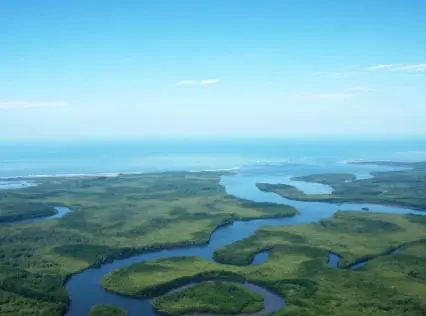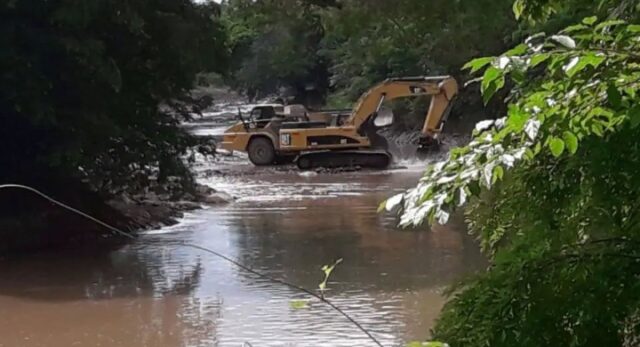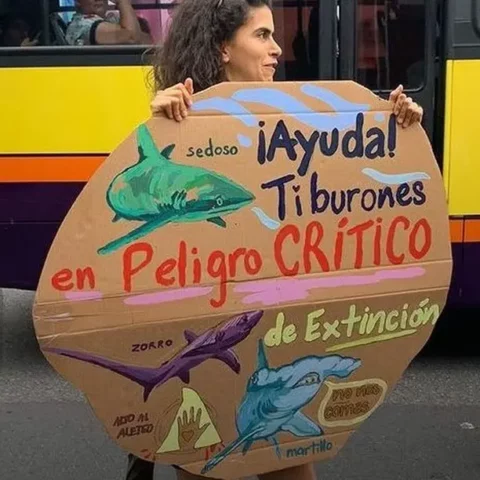Approximately 28 Costa Rican organizations and citizens in general, with digital and physical signatures, are demanding the resignation of Franz Tattenbach Capra, as Minister of Environment and Energy.
The actions are following the powers established in Article 9 and Article 11, second paragraph of the Political Constitution of the Republic of Costa Rica.

Among the signatory organizations that, in turn, have continued to denounce irregularities from the Ministry of Environment are: The Ecologist Federation (FECON), Bloque Verde, Covirena, Alianza Escazú, Ecoins, Conservationist Association “YISKI”, Ríos Vivos, among others.
Henry Picado, leader of FECON, expressed that, for the Environmental Federation “the role played by the Minister of Environment has been ”deficient, worrying and even, at times, we have questioned that it is outside our legislation, especially in terms of concentration of power within the Ministry with directions and forms of execution in commissions and completely decentralized bodies, which should have technical autonomy and Franz Tattenbach insists on keeping it under his political line, which is not only illegal but also sows very negative precedents in terms of public administration, with concentrations of power and lack of technical criteria in many of the cases we have denounced”.


Picado also added, “We are asking for his resignation as Minister because his actions have meant a constant threat to the Costa Rican image in terms of environmental care and have generated major setbacks in terms of environmental public administration”.
The request for signatures by Costa Rican organizations and citizens was supported through a communiqué, in which they highlighted the following:
On May 10, 2022, he was appointed as Minister of Environment and Energy by the Chaves-Robles administration, leaving under his command the National Meteorological Institute (IMN), the Directorates of Climate Change (DCC), Environmental Quality Management (DIGECA), Energy, Geology and Mines (DGM) and Water (DA); and under its political leadership (with varying degrees of deconcentration) the National System of Conservation Areas (SINAC), the National Technical Secretariat (SETENA), the National Commission for Biodiversity Management (CONAGEBIO), the National Forestry Financing Fund (FONAFIFO), the Comité de Ordenamiento y Manejo de la Cuenca del Río Reventazón (COMCURE), the Tribunal Ambiental Administrativo (TAA), the Parque Marino del Pacífico, and the Boards of Directors of the Isla San Lucas, Manuel Antonio, and Marino Ballena National Parks.
In other words, the President of the Republic, Rodrigo Chaves, placed in the hands of Franz Tattenbach Capra, the political, administrative, and technical direction of the country’s environmental agenda.
In the opinion of the protesting organizations and citizens, “MINAE has been subjected to an unprecedented internal attack under the management of the Minister of Environment”, attaching as an example using the communiqué (verbatim):
“ Bill 23.213, which seeks to centralize decision making in the figure of the hierarch; the delay of seven months to appoint the TAA’s proprietary judge and alternates; the movements of technical personnel when these did not provide the criteria at their convenience, the lack of appointment of a Vice Minister of Environment for over a year; and the closure of the Vice Ministry of Water and Seas, hand in hand with the complete abandonment of the policies that this carried. Despite the limitations and needs of the technical bodies, it has reduced its budget…
The cases of corruption within SETENA are undeniable and immoral. The convenient changes in technical criteria issued by SINAC demonstrate an internal struggle between those brave officials who defend the public interest and others who submit to clear private interests. Disrespecting that this country has chosen to be free of open pit mining and oil extraction, the Government has made every effort to take it back, even pushing from the DGM the elaboration of studies on gold extraction in Protected Wildlife Areas (ASP) such as Corcovado National Park”.

Environmental consequences in Costa Rica
In the communiqué, they emphasized “the lack of leadership of the Minister at the national level that aggravated critical environmental situations such as the high use of pesticides in monocultures, the contamination of water sources for human consumption, insecurity, the deterioration of the national electricity grid, the destruction of the few remaining healthy urban ecosystems in the country.

It has made attempts to revive trawling, and the ratification of the Escazú Agreement was shelved, where the Minister of Environment explicitly opposed the agreement. In addition, environmental feasibility permits were approved in record time to build 37 towers in Sámara despite the fact that the project invaded wetland areas”.
The organizations denounced that at the international level, -the country has maintained shameful positions regarding issues in which Costa Rica was considered a pioneer-.



The Minister’s contempt for environmentalists “has turned the defense of the environment into a high-risk issue in the face of growing threats”.
Given the above, the members of organizations and citizens:
1) They hold the Minister directly responsible “for the widespread ecocide that he has allowed in Costa Rica” and demand “that he be ashamed, show conscience and resign immediately”.
2) They ask the deputies of the Republic to “censure the Minister for his inaction in defense of the Environment, our Natural Heritage of the State, and the non-compliance of his responsibilities as a hierarch”.
3) They alert the international community “that the current Executive Power of Costa Rica lacks environmental commitment and is not taking the necessary actions in the face of the Climate Crisis, and has put at risk the leadership of the country in the defense of the common home of humanity”.
4) Finally, they reaffirm their struggle for the defense of the human right to a healthy and ecologically balanced environment for present and future generations; and that the Political Constitution be fully complied with to guarantee a dignified life for those who live in the country.

